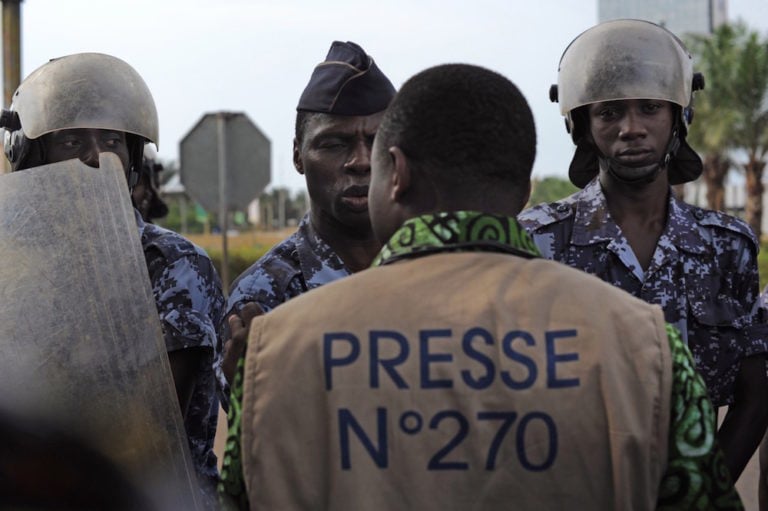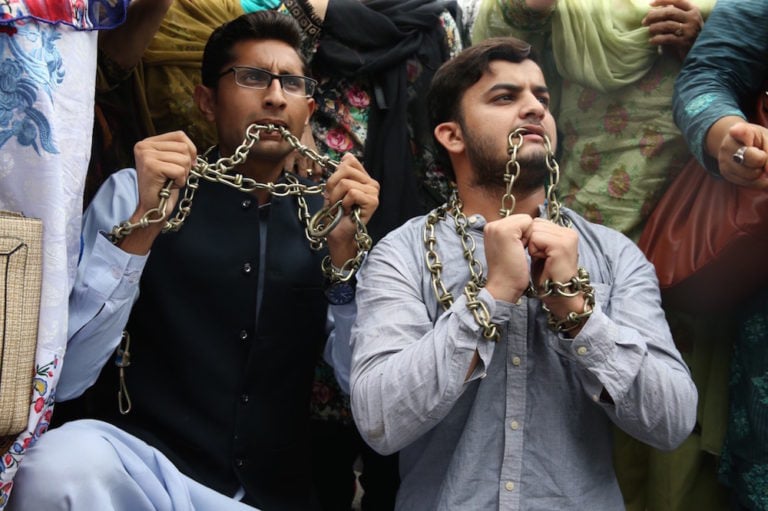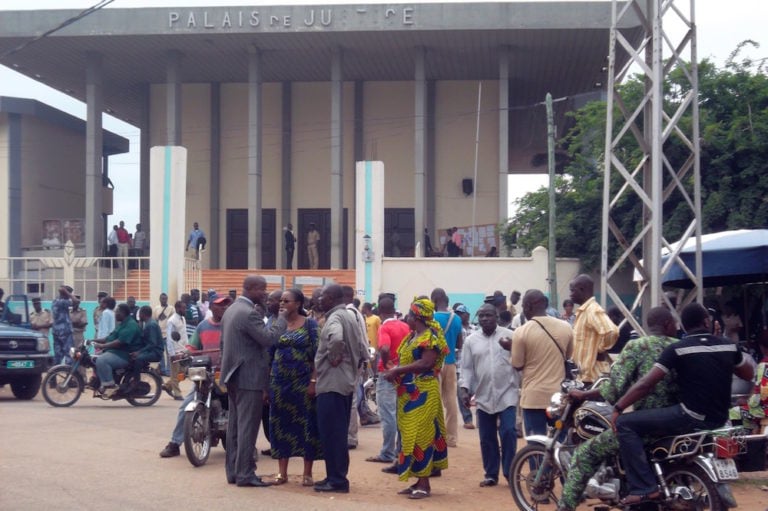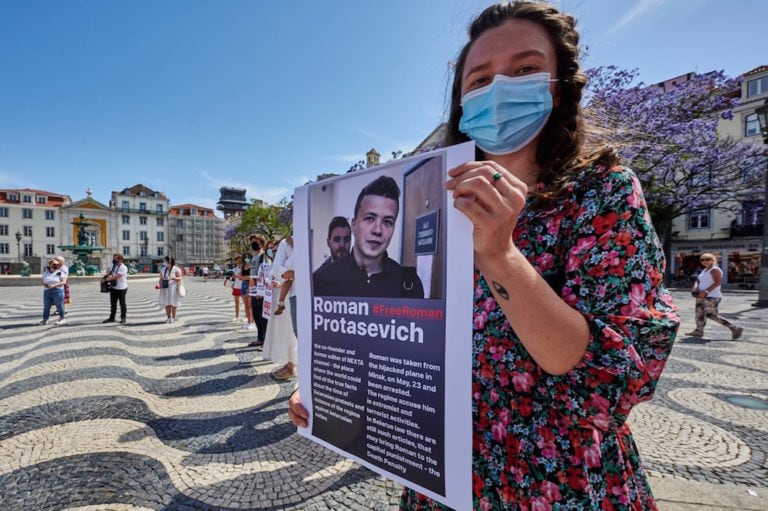Articles by Reporters Without Borders (RSF)

Indian women journalists “auctioned” on sexist and discriminatory website
Several Muslim women, including journalists, were ‘auctioned off’ in a malicious app in India.

Unrest in Kazakhstan must not serve as a pretext for censoring the media
“We call on President Kassym-Jomart Tokayev to immediately restore access to the Internet and to blocked websites, and to allow journalists to operate freely, without fear of the police, so that they can cover a protest movement that is already historic in its scope” – RSF

Two Niger journalists slapped with suspended sentences
Nigerien journalists Samira Sabou and Moussa Aksar are handed suspended sentences for publishing an international report implicating the government’s involvement in drug trafficking.

Togolese journalists granted conditional freedom
Newspaper editors Ferdinand Ayité and Joël Egah arrested on charges of defamation are released, but face stringent conditions.

Contempt proceedings against Pakistani journalists who investigated judicial collusion
Contempt proceedings were initiated against journalists for reporting on alleged judicial collusion to deny bail to leading opposition politicians on the eve of the 2018 general elections.

Togolese journalist Ferdinand Ayité target of government ire
After years of intimidation and persecution, which include administrative sanctions, judicial proceedings and surveillance, Togolese journalist Ferdinand Ayité is imprisoned.

Belarus: UN experts recognise detention of Raman Pratasevich as arbitrary
The United Nations Working Group on Arbitrary Detention (WGAD) recognised blogger Pratasevich as a victim of arbitrary detention and urged the international community to press Belarus for his release.

Reporters Without Borders: 488 journalists are currently detained worldwide
The exceptional surge in arbitrary detention is due, above all, to three countries – Myanmar, where the military retook power in a coup on 1 February 2021, Belarus, which has seen a major crackdown since the disputed 2020 presidential election, and China, which is tightening its grip on Hong Kong.
